Lumbar Spinal Disc Herniation — Discotomy With Intervertebral Disc Replacement Prosthesis: treatment in the Best Hospitals of Germany
Treatment prices are regulated by national law of the corresponding countries, but can also include additional hospital coefficients. In order to receive the individual cost calculation, please send us the request and medical records.
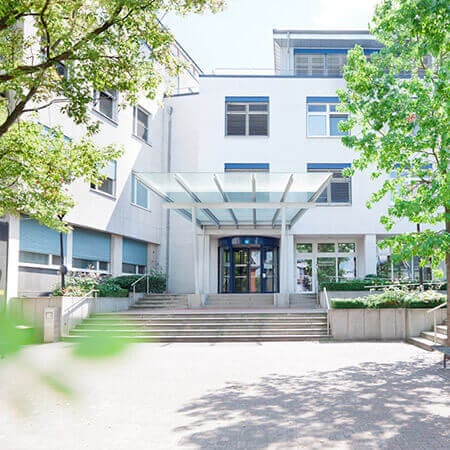
Department of Spinal Surgery
The Department of Spinal Surgery annually treats more than 920 patients with lumbar herniated discs. The specialists remove the affected disc with endoscopic equipment and replace it with prosthesis. The surgery involves the use of a three-dimensional O-Arm x-ray system, which completely protects the spinal cord. The department is headed by Dr. med. A Bitter, who specializes in microsurgical spinal interventions.
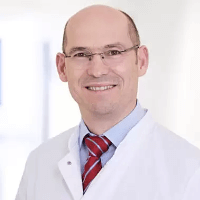
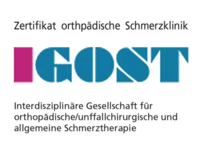
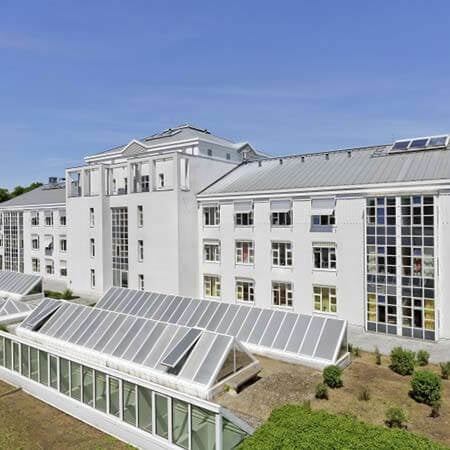
Department of Spinal Surgery
The Department of Spinal Surgery at the Vivantes Auguste-Victoria Hospital all diseases of the spine - both conservatively and operatively. Patients with herniated intervertebral discs, displacement of vertebrae, stenosis of the spinal canal or back pain are treated here. In addition, specialists of the department have a unique experience in the field of complex reconstructive and revision surgeries, which are conducted to continue or correct the previous surgical treatment.
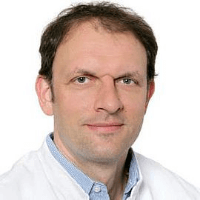
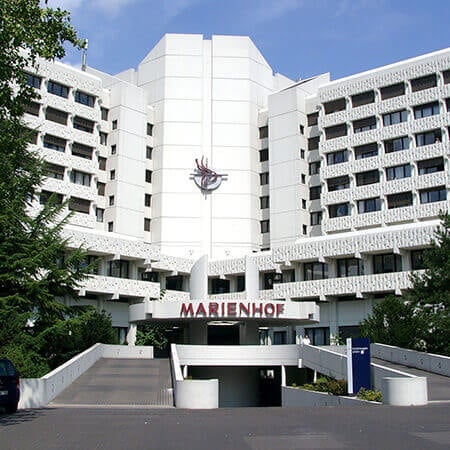
Department of Spinal Surgery
The Department of Spinal Surgery offers the full range of effective treatment methods in the area of its specialization. A highly qualified team of doctors is at the service of the department's patients, who have in their arsenal advanced conservative and surgical treatment methods for pathological changes in the spine. Spinal surgical procedures are performed in modern operating rooms, the technical equipment of which allows spinal surgeons to perfectly perform both major open surgery and sparing interventions: minimally invasive, endoscopic, and microsurgical. Surgical treatment is complemented by a carefully planned course of physiotherapy. This includes procedures such as therapeutic exercises, manual therapy, massage, osteopathic treatment, etc. The department's team of doctors consists of 10 highly qualified specialists who, together with experienced nursing staff, admit more than 1,300 inpatients annually. The medical facility is certified by the German Society for Spine Surgery (DWG) as a level II specialized center. The department's medical team makes every effort to provide each patient with optimal treatment in a pleasant and friendly atmosphere.
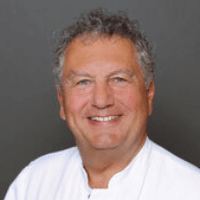
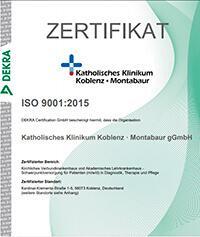
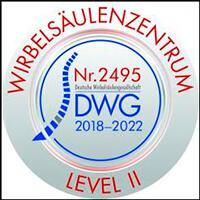
The intervertebral discs provide mobility for the spine. They are located between the vertebrae. The disk consists of a fibrous membrane and a nucleus pulposus enclosed within it. If the nucleus protrudes through the wall of the fibrous membrane, it may compress adjacent spinal nerve roots, causing pain and neurological symptoms (impaired mobility and sensitivity). This forms a hernia, which reduces the quality of life and may lead to disability. A hernia can, however, be successfully treated. One of the treatment methods is disk removal and its replacement with an endoprosthesis. Doctors in Germany perform hundreds of such surgical procedures every year, including on foreign patients. If you have been diagnosed with a herniated disc, it is best for you to seek medical attention at one of the German hospitals. With the Booking Health service, you can find out the cost of treatment in Germany and choose a medical care program at a favorable price.
Content
- Indications and contraindications for intervertebral disc replacement in the case of lumbar disc herniation
- How is surgery for a lumbar disk herniation performed in Germany?
- Why to undergo your lumbar disk herniation treatment in Germany?
Indications and contraindications for intervertebral disc replacement in the case of lumbar disc herniation
A lumbar herniated disc can be treated with conservative or surgical methods. Most patients receive conservative treatment. This type of treatment controls pain but does not cure a herniated disc, and it can grow in size.
Surgical treatment may be required if the pain cannot be resolved within 3-4 weeks of conservative treatment or if neurological symptoms occur (weakness in the legs, sensory disturbances, or pelvic floor dysfunction).
Surgical treatment options vary, and a discectomy with subsequent disk replacement surgery is not considered the main treatment for hernias in Germany because other operations are used more frequently. A discectomy with prosthetics may be required in the following cases:
- a damaged disk at the same level, even if it is affected by multiple and large hernias;
- the possibility of disk replacement surgery at two levels can be considered, but in this case, there is a higher risk of needing a revision operation in the future;
- revision hernia surgery if the previous surgical treatment has failed or the results have worsened over time.
Severe vertebral displacement, vertebral fractures, osteoporosis, facet syndrome, spinal canal stenosis, and low mobility in the operated spinal segment are considered contraindications for hernia treatment using a discectomy with endoprosthetics in Germany.
Doctors typically attempt disk replacement operations on young patients under the age of 40. Recent studies show that age does not significantly affect the effectiveness of the surgical intervention, so the treatment method has begun to be widely used in Germany even in the age category over 60 years.
How is surgery for a lumbar disk herniation performed in Germany?
The operation is performed using an open approach. Doctors remove the intervertebral disc of the lumbar spine along with all hernias, after which an artificial endoprosthesis is implanted in its place.
This is a reliable operation that provides good long-term results. A patient no longer has their own intervertebral disc after the operation, so the herniation will not repeatedly develop at this level. After a discectomy, treatment of pain with conservative methods is not required, and most neurological symptoms regress.
Unlike spinal fusion (firm fixation of two vertebrae), the implantation of an endoprosthesis preserves the physiological mobility of the spine. Therefore, adjacent spinal disks are not overloaded, degenerative processes do not develop in them, and patients do not suffer from any diseases of the adjacent spinal segments. The spine remains stable. A good functional result can be achieved in a short time after spinal disk replacement surgery.
The vast majority of patients benefit from discectomy treatment of pain. The neurological symptoms completely disappear if they have not been present for a long time. With delayed treatment, slight neurological deficits may persist, but they will be milder than before surgery. Full rehabilitation after the surgical intervention will help to restore the maximum mobility and sensitivity of the lower extremities, as well as pelvic organ functions.
Why to undergo your lumbar disk herniation treatment in Germany?
Germany has the largest experience in intervertebral disc replacement in the world. The Charite University Hospital Berlin was the first medical facility in the world to implant a prosthesis in the lumbar spine. Disk endoprostheses began to be produced in Germany in the 1980s of the twentieth century.
Today, doctors at German Spine Surgery Centers implant state-of-the-art artificial intervertebral discs, which are reliable, maintain mobility of the spine, and provide freedom from revision surgical procedures. You are welcome to use the Booking Health service to undergo your treatment at one of the German hospitals. On our website, you can find out the cost of treatment in Germany and compare prices at different Spine Surgery Centers.
Spinal disc prosthesis placement for hernias in Germany has the following benefits:
- new modifications of operations;
- high-quality equipment at German Spine Surgery Centers;
- the use of intraoperative diagnostics to reduce the risk of complications;
- the largest experience in disc prosthetics among all countries in the world;
- Germany uses the most advanced endoprostheses that will serve for decades;
- full rehabilitation after surgery, allowing patients to return to their usual lives in a short time without any back pain and physical restrictions.
You are welcome to choose a medical care program through the Booking Health service to undergo your spine surgery in Germany. The cost of treatment in Germany will be lower for you than if you contact the hospital directly. The price will be reduced due to the absence of taxes for foreign patients. Our company's employees will take care of all the arrangements for your trip. We will help you select a hospital in Germany, book a hotel and airline tickets for you, and provide you with interpreting services. We will also organize your transfer from the airport to the hospital and back.
Authors:
The article was edited by medical experts, board-certified doctors Dr. Nadezhda Ivanisova and Dr. Vadim Zhiliuk. For the treatment of the conditions referred to in the article, you must consult a doctor; the information in the article is not intended for self-medication!
Sources:

